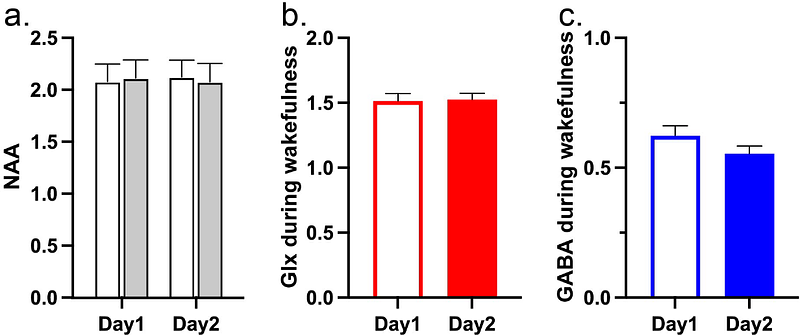Sleep is associated with reduction of excitatory signaling in medial prefrontal cortex

Sleep is associated with reduction of excitatory signaling in medial prefrontal cortex
Yamada, T.; Cochrane, A.; Labonte-Clark, T.; Watanabe, T.; Sasaki, Y.
AbstractAlthough many sleep medications enhance inhibitory signaling, it remains unclear whether inhibitory or excitatory neurotransmitters contribute to the natural transition from wakefulness to sleep in humans. Here, we show that changes in excitatory, rather than inhibitory, neurotransmitter levels are associated with this transition. Young, healthy participants underwent two nap sessions with polysomnography, during which glutamate and GABA concentrations in the medial prefrontal cortex were measured using magnetic resonance spectroscopy. Glutamate gradually decreased during deeper sleep stages compared to wakefulness in the second session, with better sleep quality. No such change occurred in the first session with poorer sleep, likely due to the first-night effect. Furthermore, reduced glutamate significantly mediated sleep-onset latency in both sessions. Conversely, GABA concentration did not change from wakefulness to sleep in either session. These findings provide the first evidence that reduced excitatory signaling is a key feature of natural good sleep onset in the human brain.